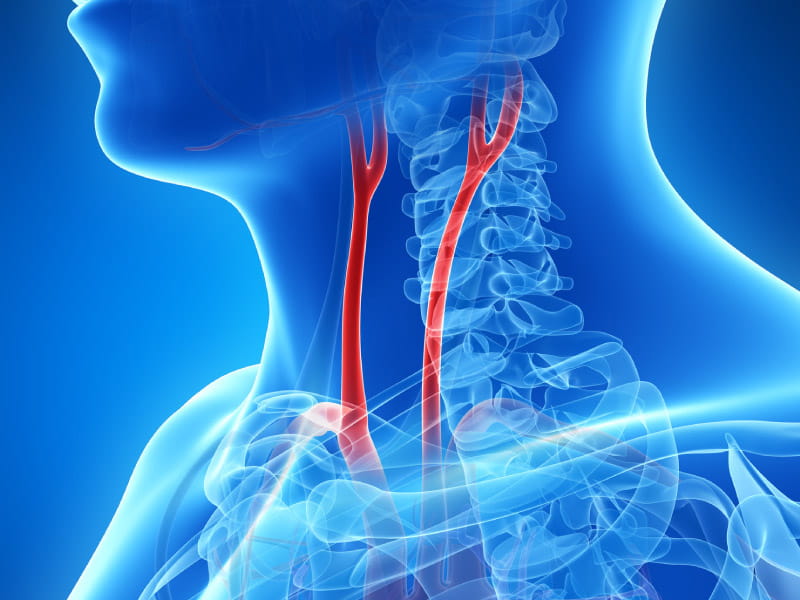What causes clogged arteries in the neck?
Folks making lower than $35,000 a 12 months could also be extra more likely to have carotid artery stenosis, a number one explanation for stroke, a brand new examine discovered.
Carotid artery stenosis is a narrowing of the massive arteries on both facet of the neck that carry blood to the mind. The narrowing is commonly a buildup of sticky plaques. Identified danger elements embrace excessive ranges of “dangerous” LDL ldl cholesterol, hypertension, smoking and diabetes.
Earlier analysis reveals Black and Hispanic individuals have a decrease danger of carotid artery stenosis in comparison with whites, and Native People have a better danger. However prevalence based on elements aside from race and ethnicity is much less clear.
To establish doable patterns, researchers evaluated digital well being data of a various pool of 203,813 contributors within the Nationwide Institutes of Well being’s All of Us Analysis Program. Half of contributors had been white, 20% had been Black, 20% had been Hispanic, 3% had been Asian and the remainder recognized as different races or ethnicities. One in 10 had lower than a highschool diploma and 36% had a family revenue of lower than $35,000 per 12 months.
General, 2.7% of contributors had been recognized with carotid artery stenosis. Amongst them, 7.3% had undergone revascularization, a surgical process to revive regular blood stream to the mind.
These making lower than $35,000 a 12 months had 15% higher odds of carotid artery stenosis than these with a better revenue. Decrease revenue additionally was related to 38% larger odds for carotid revascularization.
The findings, printed within the journal Stroke, shall be offered Thursday on the American Stroke Affiliation’s Worldwide Stroke Convention.
“Having a decrease revenue could have an effect on individuals’s meals selections,” stated Dr. Helmi Lutsep, professor and interim chair of the division of neurology at Oregon Well being & Science College in Portland. She was not concerned within the examine. “They might not be capable to purchase wholesome vegetables and fruit. And the extra we find out about this, the extra we will intervene and probably change the sample.”
Lutsep stated the examine affords additional proof that medical doctors must be contemplating well being disparities and utilizing what they find out about their sufferers to information preventive care.
When race and ethnicity had been thought-about, Black and Hispanic contributors had decrease odds of carotid artery stenosis, echoing earlier analysis. Black contributors with the situation additionally had been much less more likely to obtain revascularization remedy.
“That may very well be resulting from much less extreme shows,” stated lead writer Dr. Daniela Renedo, a postdoctoral analysis fellow on the Yale Faculty of Drugs in New Haven, Connecticut.
So-called volunteer bias, which results in extra wholesome individuals enrolled, may clarify the decrease charges of carotid artery stenosis in sure teams, the researchers stated.
Even so, Lutsep recommended the range of the examine inhabitants, particularly that 61% had been ladies, as a result of males are overrepresented in lots of stroke-related trials. However she additionally famous the potential for bias towards contributors with entry to computer systems within the All of Us Analysis Program, since enrollment seemed to be accomplished primarily by means of its web site.
Loads of questions stay, Renedo stated. However researchers will quickly have entry to the All of Us contributors’ genetic data, and “we’ll use these information to raised perceive the interplay between social determinants of well being and organic elements that finally result in carotid stenosis and its penalties.”
The takeaway message for now, she stated, “is that extra consideration must be given to the current well being care disparities on this situation.”







